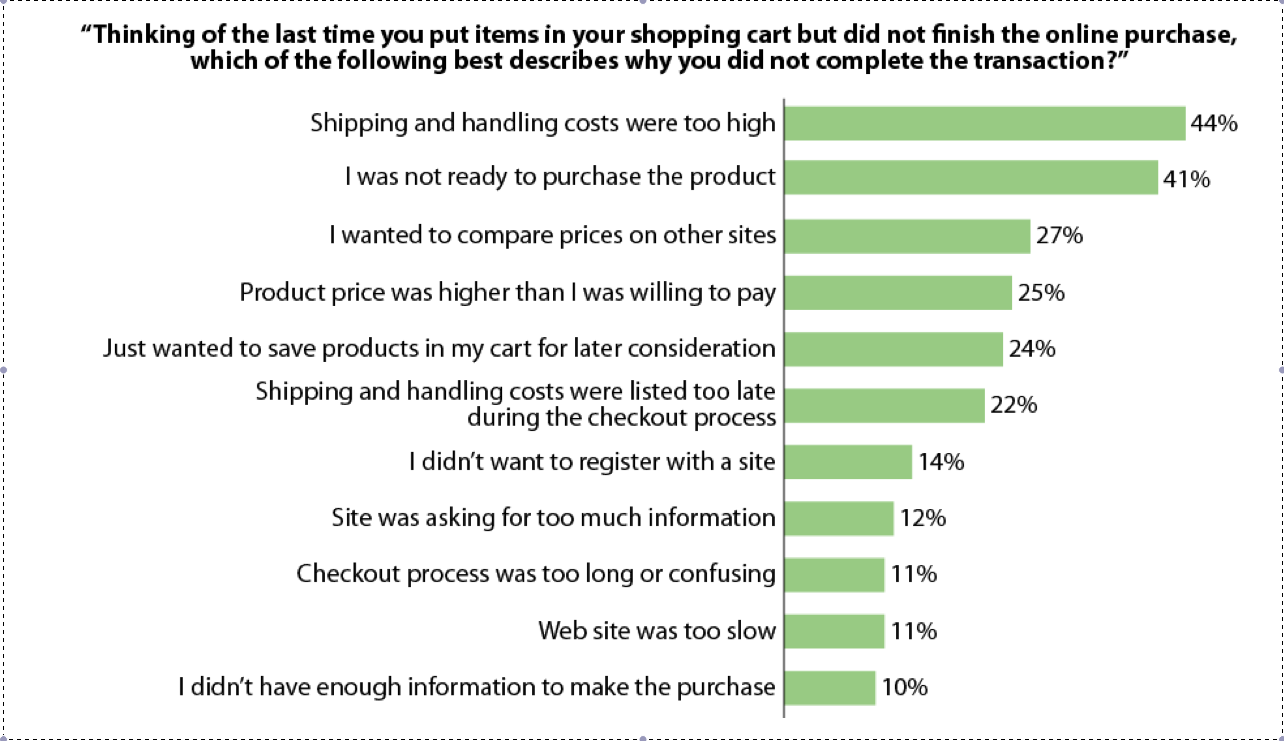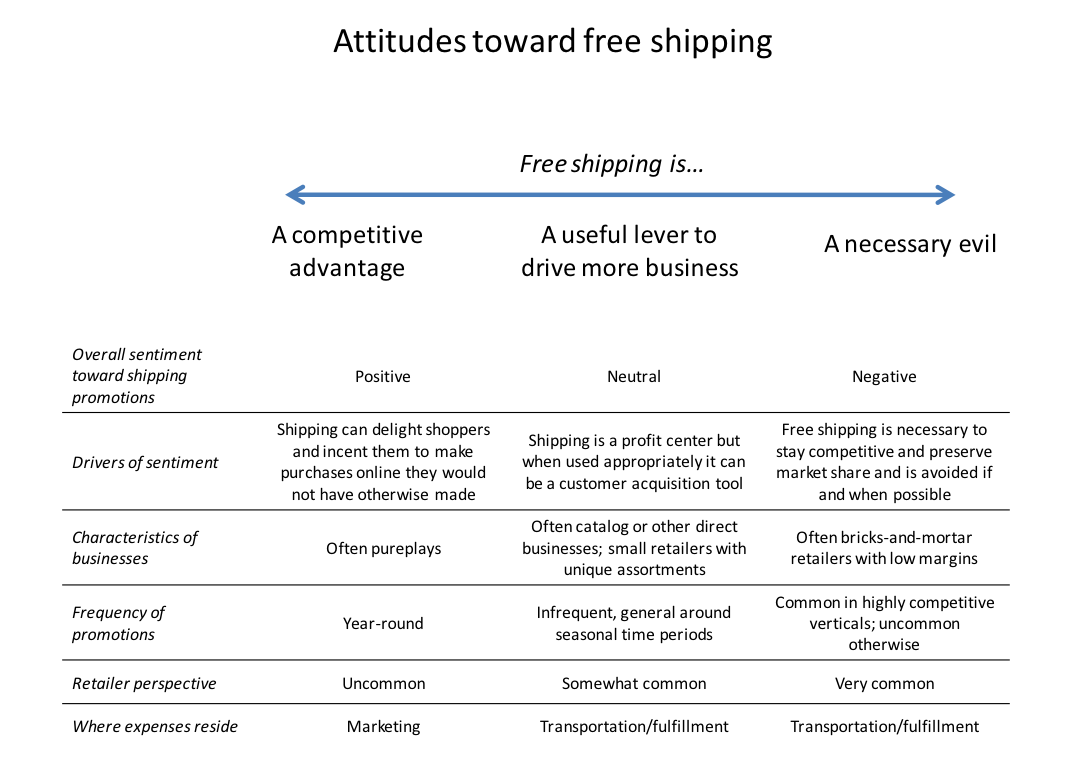Around three years ago, Myer said that free shipping would help increase online sales by 1000%.
A bold prediction. It seems to depend on free shipping becoming a sustainable advantage over competitors. Is that possible?
Free-shipping seems like an 'innovation' with a big problem: it has a very low barrier-to-entry, which is another way of saying that it is easy to copy. A ten-fold sales increase will disappear if Myer's competitors make the same offer.
But free shipping is not quite as simple as it seems. If Myer does it right, it will gain a significant advantage.
- First, you have to avoid the temptation to save money by consolidating multiple purchases into one shipment. Doing this means delaying shipment. The savings are small, it's complex to arrange, and it leaves a bad taste.
- The site's dynamic pricing rules need changing, possibly substantial changes.
- The impact on profitability is hard to predict up front, and it will change buying dynamics: people will visit and buy more often, but their shopping baskets will become smaller.
- You will see more impulse purchases, which changes the way you engage with customers.
Good retailers know most of this, which is why good retailers can become good online retailers.
A strong brand promise
If you want to make free shipping a strong brand promise, you need to do it wholeheartedly, for everything. Consumers are very influenced by shipping costs, and if they don't trust or understand your free shipping offer, they may not visit your site.
UPS commissioned a report by Forrester in late 2010 (released in June 2011), and these are some of the key findings:
1) Shipping costs are the number one reason people abandon shopping carts

2) Retailers are very nervous about the costs and tend to offer compromised, limited free-shipping
Many free shipping offers are conditional or limited. Few retailers bite the bullet and decide to be become a "free shipping site" (such as bookdepository.co.uk). Instead, they use free shipping tactically, to address some customers and some products.
Personally, I think this is a missed opportunity. It may be better to offer universal free shipping and get known for it. If you always offer free shipping, it's very easy for consumers to remember. If you offer it sometimes under some circumstances, you may stop the problem in the chart above, but did you get the visitor in the first place? Margins can be controlled by making alternatives attractive (discounted expedited shipments, buying clubs). Just have a look at Amazon.com. The Forrester report quotes an earlier study showing that 46% of consumer were extremely or heavily influenced by shipping costs when choosing an online retailer. So it you're known to offer it, no ifs or buts, you're more likely to be a choice for those consumers.
Forrester said that brick and mortar retailers tend to view free shipping as a "necessary evil". There's something wonderful about the way that large incumbents are somehow forbidden by some law of nature from embracing innovation. "Necessary evil" is another way of saying "they just don't get it". We won't cry for them here, but this reluctance is real and that's an open door to others.
Another point specific to Australia is that our retailers are addicted to high/low pricing. Sales are stimulated by discounts and special offers, and I imagine free-shipping is seen as just another short-term promotional tool.
Note how the different attitudes to the added-value of free shipping also dictate how the cost is seen: the "necessary evil" camp sees it as pure lost margin, and the "competitive advantage" camp sees it is a brand-building (ie marketing) cost.

This Forrester report is a good read. It's a free download, in exchange for an email address.
http://compass.ups.com/freeshipping/
GrowthPath believes that innovation, disruption and uncertainty are the seeds to growth. Online commerce is an opportunity, particularly in Australia where big retailers are either prevented from going online because of their DNA (large franchises) or just unused to moving quickly. GrowthPath has approaches to help SMEs identify how to turn change to advantage, and how to response quickly and confidently when opportunities are identified.
We can help with your online strategy as we have an impressive background in high-volume, international online. In conjunction with former colleagues now at KongoCommerce, GrowthPath offers a complete due-diligence solution to parties thinking of acquiring online businesses. We'll combine a thorough operational assessment with a strong inspection of financials.
